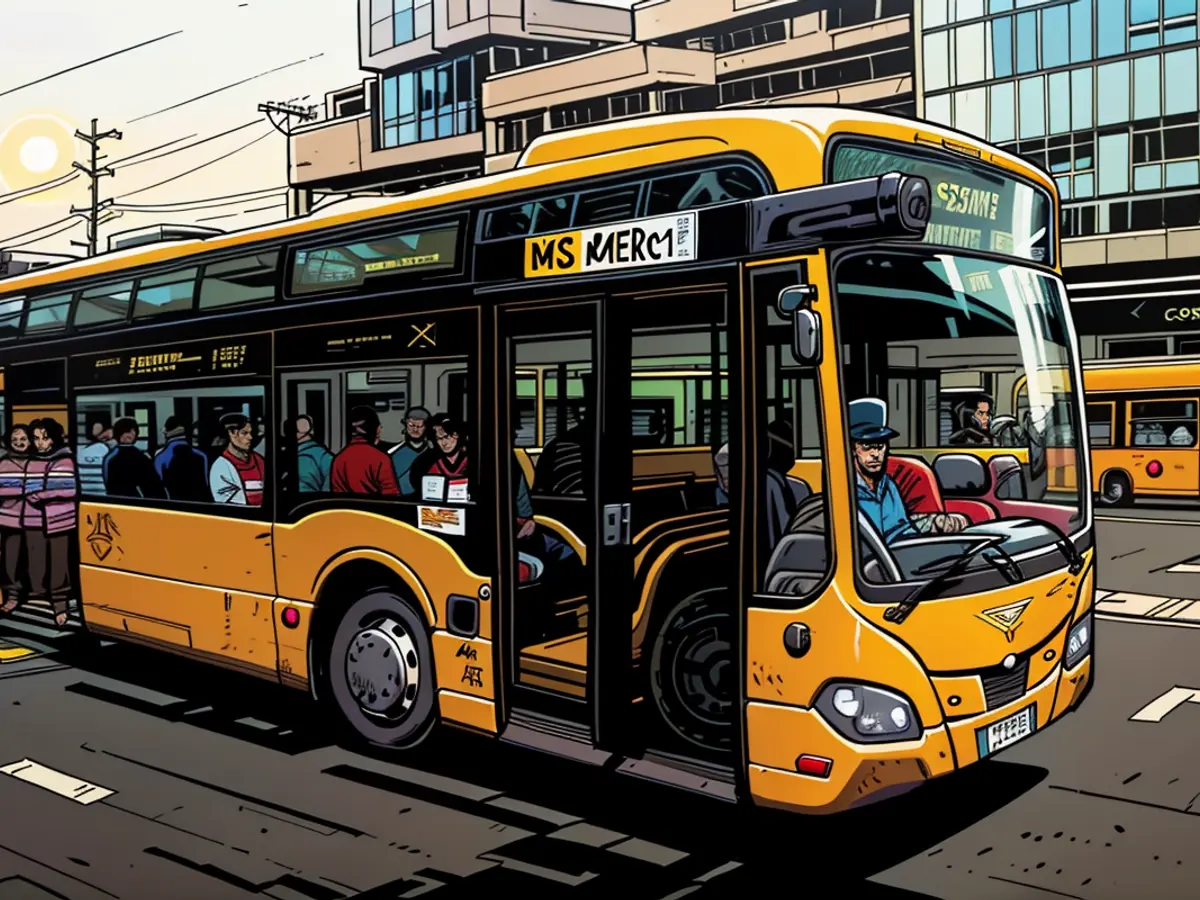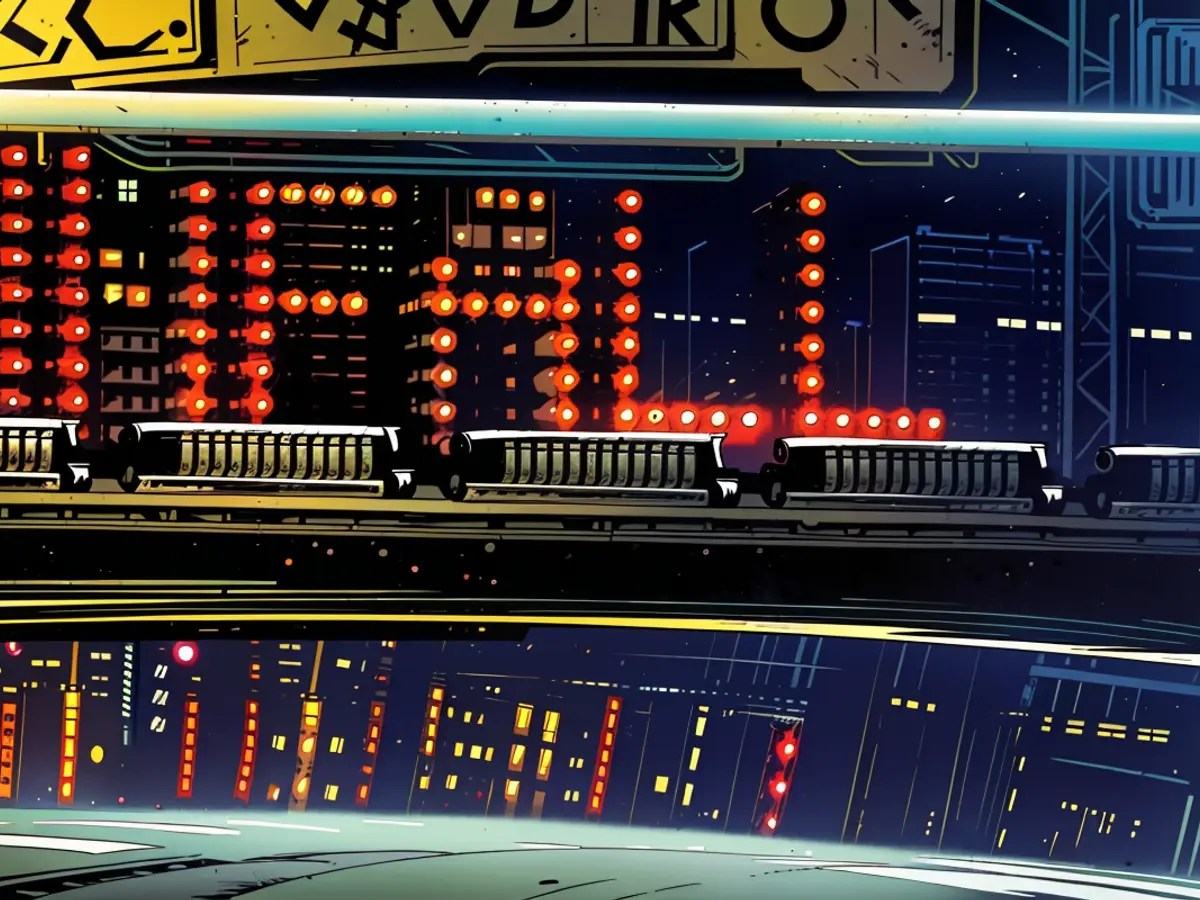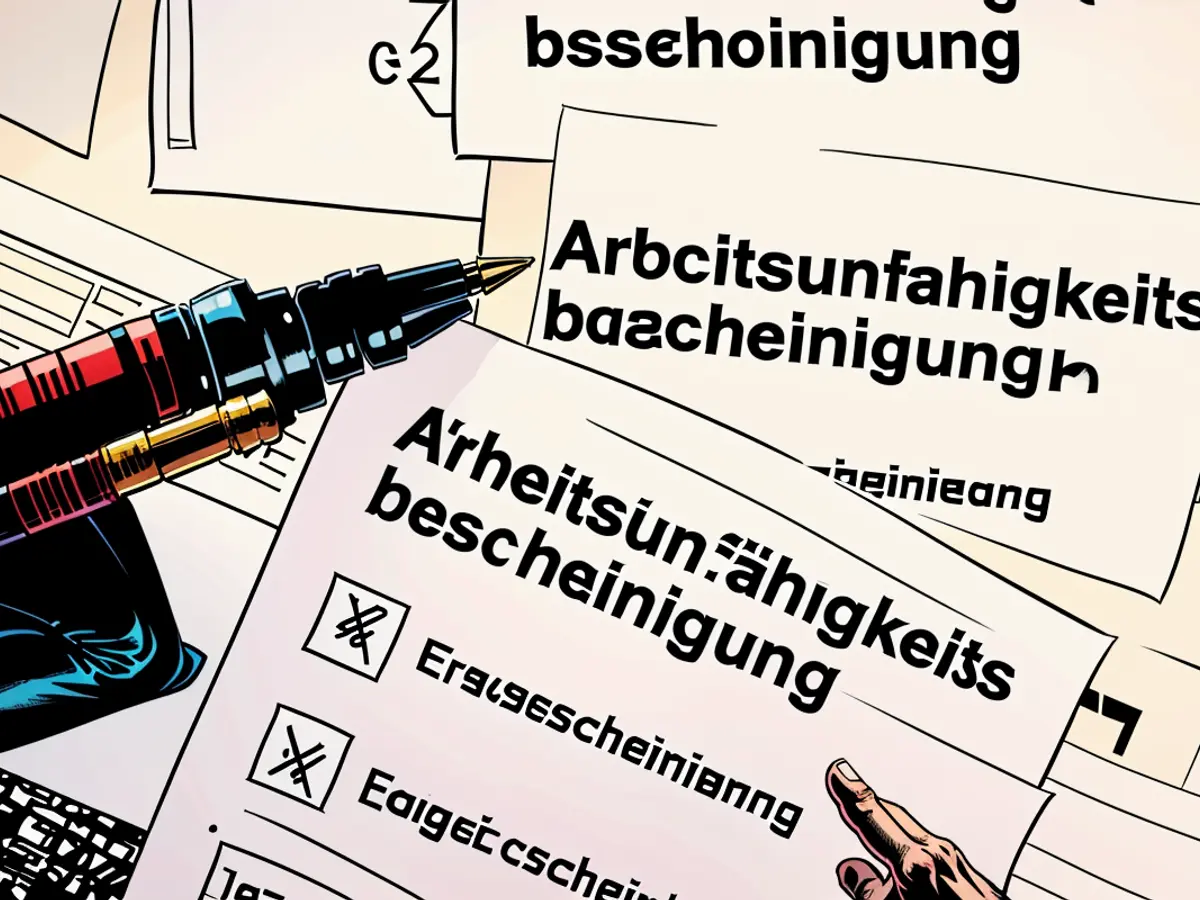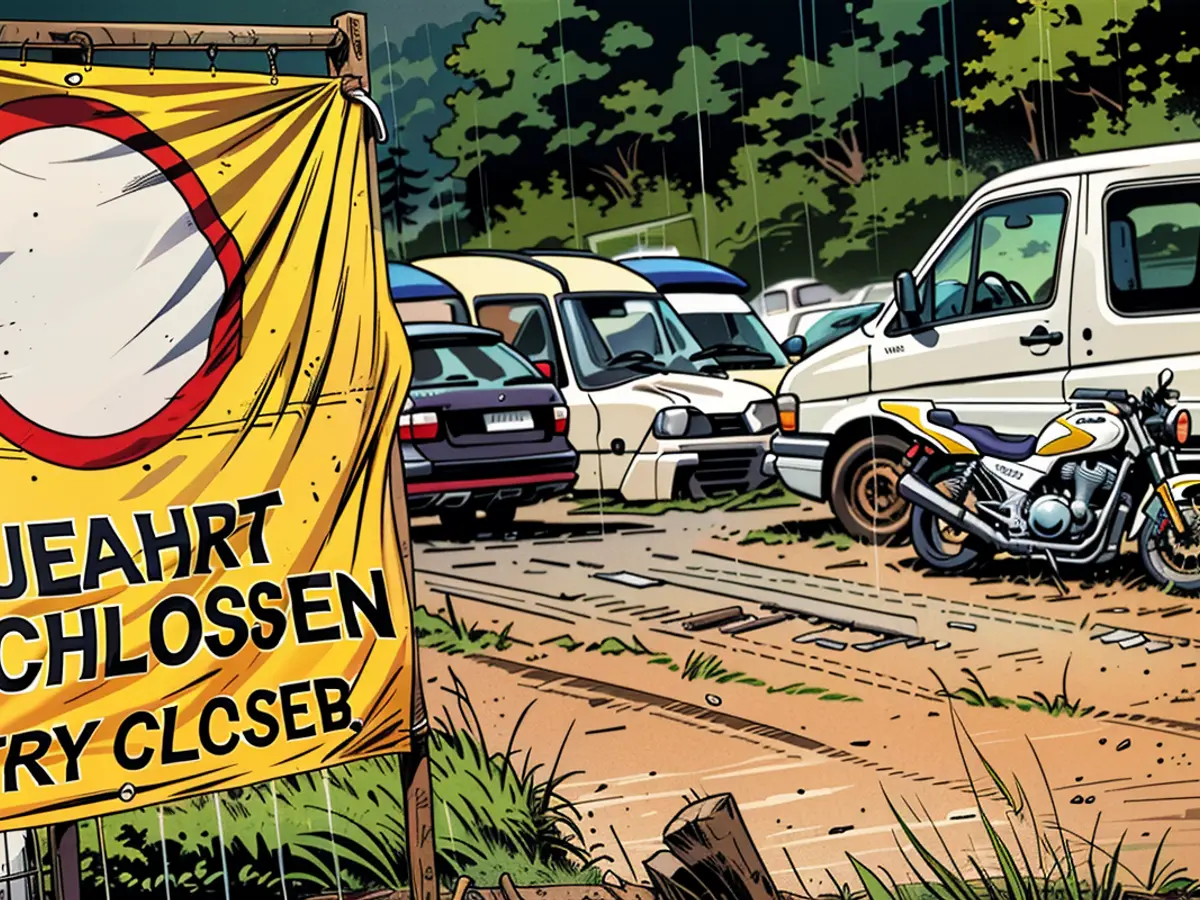- BVG to abolish cash payments on buses
Small Revolution in Berlin's Public Transport: From September 1st, passengers can only buy tickets for BVG buses without cash. The Berliner Verkehrsbetriebe (BVG) announced this change, citing a shift in passenger behavior, with around 99% of customers now boarding with a valid ticket. On average, passengers currently pay for only three tickets per day and bus with cash.
This decision, first reported by the Berliner Zeitung, significantly reduces the workload for bus drivers, according to the BVG. They no longer have to handle cash or reconcile cash transactions. Given the staff shortage, the BVG sees this as an important signal to its employees.
The change is also intended to make things easier and faster for passengers. Those without a Germany ticket, Berlin subscription, or other time cards, and who don't buy their ticket via app or beforehand at an automated machine, can pay the bus driver with debit or credit cards, or digital services like Apple and Google Pay.
BVG promotes prepaid card
There's also a rechargeable BVG prepaid card available at BVG customer centers and 900 lottery outlets. Plans include expanding the distribution network with new partners like Späti shops, individual retailers, and gas stations.
The Senate Department for Mobility and Transport supports this step. "We approved it because we consider it a sensible solution," said spokeswoman Petra Nelken. Hardly anyone buys a ticket with cash in buses anymore, and the new regulation is a relief for both drivers and passengers.
Criticism from the House of Representatives
Criticism comes from the House of Representatives from Left and AfD parties. "There are still people who, for financial or health reasons, or due to their age, cannot or do not want to pay with a debit card or smartphone," warns the Left's transport politician Kristian Ronneburg. "Those who want to relieve bus drivers from handling cash should ensure a comprehensive network of ticket sales points and machines."
The AfD's transport politician Rolf Wiedenhaupt argues similarly. "By abolishing cash payments in buses, mainly elderly people, but also tourists and spontaneous travelers, are disadvantaged," he said. "It's also another step towards the complete abolition of cash, which the AfD categorically rejects."
Cash payments in buses must remain an option. "If the BVG wants to relieve drivers, it should at least equip the buses with small ticket vending machines, so passengers can still pay by cash," Wiedenhaupt demands.
Politicians call for help for customers and leniency
The CDU's transport politician Johannes Kraft finds the BVG's argument convincing and the decision understandable, given the weighing of pros and cons. "I would have wished for more advance notice, four weeks beforehand is quite short," he said.
Kraft also calls for proactive communication from the BVG about the change. "From today, every passenger who buys a ticket with cash in the bus should be reminded by the driver," he demands. "And I expect a leniency regulation from September 1st." One possible solution could be to allow passengers who want to pay by cash to board and give them a BVG prepaid card to top up.
The spokesperson for traffic policy of the Green faction, Antje Kapek, also considers the new regulation to be correct. "The bus operation has been running at its limit for months. Therefore, abolishing cash payment here is long overdue." This would save time and nerves and thus relieve the drivers. "In cities like London, this has been a successful practice for years. However, support for the transition is needed."
BVG announces information campaign
The BVG assured that it will extensively inform its passengers about the change in the coming weeks. This will be done through various digital display boards, on the website BVG.de, in social media, the BVG app, in buses, and customer centers.
Incidentally, this is not entirely new: Due to Corona, the BVG had temporarily banned cash in buses in 2020. However, this payment method was reintroduced at the beginning of 2023.
Currently, the BVG has around 1.2 million subscribers. In total, around 1.8 million Berliners use season tickets. Since the introduction of the 49-euro Germany ticket, many Berlin visitors also bring their ticket with them. And 95 percent of occasional customers buy their ticket at sales points, machines, or via app - not in the bus.
The European Union, being a strong supporter of digital transformation, might express its interest in the BVG's shift towards digital tickets, as it aligns with their goals of promoting cashless payments and reducing physical transaction handling.
Given the controversies and concerns raised by some political parties regarding the elimination of cash payments, the European Union could encourage a balanced approach, ensuring that elderly citizens, tourists, and those without digital payment options are not left disadvantaged.







